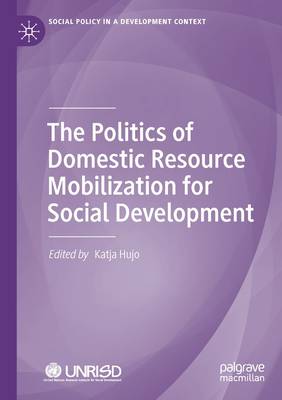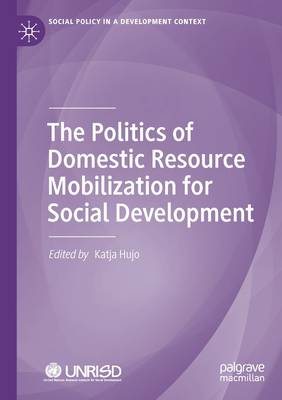
- Afhalen na 1 uur in een winkel met voorraad
- Gratis thuislevering in België vanaf € 30
- Ruim aanbod met 7 miljoen producten
- Afhalen na 1 uur in een winkel met voorraad
- Gratis thuislevering in België vanaf € 30
- Ruim aanbod met 7 miljoen producten
The Politics of Domestic Resource Mobilization for Social Development
Omschrijving
At a time when the development community is grappling with the challenge of raising the required investment--estimated in the trillions of dollars--for attainment of the Sustainable Development Goals (SDGs), countries' mobilization of their own fiscal revenues is receiving increasing attention. This edited volume discusses the political and institutional contexts that enable poor countries to mobilize domestic resources for global commitments and national development priorities. It examines the processes and mechanisms that connect the politics of resource mobilization and demands for social provision; changes in state-citizen, state-business and donor-recipient relations associated with resource mobilization and allocation; and governance reforms that can lead to improved and sustainable public revenues and services.
The volume is unique in putting a spotlight on the political drivers of domestic resource mobilization in a rapidly changing global environment and in differentcountry contexts in Latin America, Asia and sub-Saharan Africa. It will appeal to a broad academic audience in the fields of economics, development studies and social policy, as well as practitioners, activists and policy makers.
Specificaties
Betrokkenen
- Uitgeverij:
Inhoud
- Aantal bladzijden:
- 443
- Taal:
- Engels
- Reeks:
Eigenschappen
- Productcode (EAN):
- 9783030375973
- Verschijningsdatum:
- 8/07/2021
- Uitvoering:
- Paperback
- Formaat:
- Trade paperback (VS)
- Afmetingen:
- 148 mm x 210 mm
- Gewicht:
- 562 g

Alleen bij Standaard Boekhandel
Beoordelingen
We publiceren alleen reviews die voldoen aan de voorwaarden voor reviews. Bekijk onze voorwaarden voor reviews.










